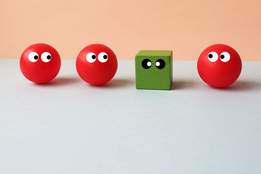
‘Stratovolcano’
Italy’s Mount Etna erupted this week, sending more people than usual to look up words including stratovolcano.
According to the U.S. Geological Survey, volcanic activity in the Mount Etna area can vary from explosive eruptions to lava flows and ash emissions. The active stratovolcano is well-known for its frequent and continuous eruptions. The volcano has a 500,000-year history of eruptions, with at least 2,700 years of such activity recorded, according to UNESCO, a United Nations Educational, Scientific and Cultural Organization (UNESCO). Mount Etna is one of the most researched and closely watched volcanoes in the world today.
—Janet Loehrke, USA Today, 2 Jun. 2025
A stratovolcano is a volcano composed of explosively erupted cinders and ash with occasional lava flows. Stratovolcanoes are characterized by their conical shape formed by layers of volcanic material deposited during successive eruptions. They tend to slope gently at the base but rise quickly near the summit to form tall mountain peaks. There are more than 700 known volcanoes classified as stratovolcanoes, many more than any other volcanic formation. Several are among the best-known volcanoes because of their striking appearance and their notoriety for some of the most spectacular eruptions in history.
‘Éclaircissement’
Lookups for éclaircissement have been high since it was the winning word in this year’s Scripps National Spelling Bee, correctly spelled by Faizan Zaki. In previous rounds, he aced the spelling of Chaldee, Symlin, olona, and adytum, among others.
Faizan Zaki of Texas ultimately claimed victory in the spelling bee after 21 rounds. His winning word, éclaircissement, is a noun that refers to a clearing up of something obscure.
—Sasha Hupka, The (Phoenix) Arizona Republic, 2 Jun. 2025
Éclaircissement is defined as “a clearing up of something obscure,” a meaning it shares with enlightenment. If you thought you detected a certain Gallic je ne sais quoi about the word you are correct: it comes from French, and has been used in English since the late 17th century.
Figures and statistics are very scarce—and when they are there, they are there as much for eclat as for éclaircissement: we learn that a Scottish expedition by the Earl of Hereford destroyed 243 villages, five market towns and seven monasteries; or that it took 6,500 horses to carry the guns and ammo for an invasion of France. But if you wanted to read a scholarly history, rather than a storytelling one, you wouldn’t be buying this book anyway.
—Sam Leith, The Spectator (London), 22 Sept. 2012
‘Kayfabe’
Lookups for kayfabe spiked on Thursday afternoon, seemingly connected to increased usage on social media in reference to an online spat between Elon Musk and President Donald Trump. The spat involved, among other things, Musk claiming that Trump would not have won the 2025 presidential election without him, and Trump threatening to cancel government contracts with Musk’s companies.
Maybe it’s just me, but this Elon vs. Trump ‘war’ feels like kayfabe.
—@AmandiOnAir, X (formerly Twitter), 5 June 2025
Throwing Trump’s election victory into question wouldn’t be something Trump would ever agree to, even as kayfabe.
—@airship_of_arbitrary, Reddit, 5 June 2025
The word kayfabe comes from professional wrestling, where it refers either to the tacit agreement between professional wrestlers and their fans to pretend that overtly staged wrestling events, stories, characters, etc., are genuine, or to the playacting involved in maintaining kayfabe. Use of kayfabe has also breached the world of wrestling, and can refer broadly—as it does in the above social media posts—to any tacit agreement to behave as if something is real, sincere, or genuine when it is not. Given that kayfabe may deliberately have been coined to be as opaque as possible, it is not surprising that the etymology of this word is obscure. It was added to our dictionary in 2023.
‘Deep State’
Deep state saw a bump in lookups this week. While this bump is difficult to attribute to a single news story, the term does appear frequently in print.
Trump has long promised to dismantle the “deep state”—a supposed secret network of powerful people manipulating government decisions behind the scenes—to build his base of support, said Yotam Ophir, a communications professor at the University at Buffalo. “He built part of this universe, which at the end of the day is a fictional universe,” he said. Now that Trump is in power and has stocked loyalists throughout his administration, his supporters expect all to be revealed. Delivering on that is difficult when many of the conspiracies he alleged aren’t real, said Joseph Uscinski, a political scientist who studies conspiracy theories at the University of Miami.
—Ali Swenson, The Associated Press, 30 May 2025
We define deep state as “an alleged secret network of especially nonelected government officials and sometimes private entities (as in the financial services and defense industries) operating extralegally to influence and enact government policy.” The term entered English in the late 1990s as a translation of the Turkish derin devlet. It was added to our dictionary in 2019, alongside vacay, pickleball, and fatberg.
‘Abomination’
Lookups for abomination began spiking on Tuesday after billionaire Elon Musk used the word to characterize President Donald Trump’s favored spending bill.
Elon Musk is unloading on President Donald Trump’s “Big Beautiful Bill” like never before. “I’m sorry, but I just can’t stand it anymore,” Musk wrote on X on Tuesday afternoon. “This massive, outrageous, pork-filled Congressional spending bill is a disgusting abomination.”
—Bryan Metzger, Business Insider, 3 Jun. 2025
We define the relevant sense of abomination as “something regarded with disgust or hatred.” The word can be traced back to the Latin verb abōminārī, meaning “to detest.”
Word Worth Knowing: ‘Mlem’
Mlem—internet slang for an animal sticking its tongue out—is not currently defined in our dictionary proper, but we have our eye on it, and it’s among the many words and phrases covered in our Slang feature. Mlem is often used on social media in captions of photographs (or responses to photographs) of an animal sticking its tongue out as if to lick its nose, the air, etc. Often the animal is a household pet, but not always. Mlem may be contrasted with another internet slang term, blep, used when an animal inadvertently has its tongue sticking partway out, as while sleeping. Both mlem and blep are thought to be imitative of a sound a human might make sticking their tongue out in imitation of their pet or another animal.
More than a decade ago, people started posting about Doge, a meme of a photo of a shiba inu dog with words like “wow” and “so scare” in colorful comic sans printed on top of the photo. In 2012, there was the tumblr post with a picture of a dog that gave users three options: pet doge, snuggle doge, feed doge. This kind of language mirrored that of its predecessor, the I Can Has Cheezburger cat. And that language evolved into what we now know as dog speak, making its debut in a 2017 NPR article that detailed the new lexicon: Calling dogs doggos and puppers; saying their feet tippy tap when they are excited; spotting a canine’s tongue and exclaiming “mlem.”
—Christianna Silva, Mashable, 25 Aug. 2021




